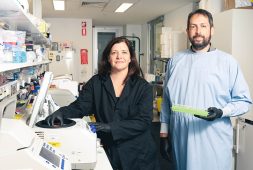
According to a massive recent study, engaging in dancing or going for brisk walks can reduce the risk of diabetes by a staggering 75 percent. This is considered a breakthrough, especially for those who are at a higher risk for the disease simply because they are more genetically predisposed.
Individuals who incorporated over an hour of moderate-to-vigorous exercise into their daily routine were 74 percent less likely to be diagnosed with diabetes compared to their sedentary counterparts. It’s a matter of simply taking time for it and making sure you get the exercise you need.
Remarkably, this protective effect extended to those with a genetic predisposition to diabetes, even if the disease ran in their family. In fact, their susceptibility decreased even more than individuals with a low genetic risk who did not engage in regular physical activity.
“People are unable to control their genetic risk and family history,” said the study’s senior author Professor Melody Ding, of Sydney University. “But this finding provides promising and positive news that through an active lifestyle, one can fight off much of the excessive risk for type 2 diabetes.”
The Australian team conducted a study involving 59,325 adults from the UK Biobank, which holds detailed information about the genes and health of approximately half a million Britons. At the beginning of the study, participants were equipped with accelerometers on their wrists and then followed for a period of up to seven years.
This groundbreaking study is the first to demonstrate that engaging in exercise can counteract the genetic risk of developing type 2 diabetes, particularly when linked to unhealthy lifestyles.
The term “moderate-intensity physical activity” refers to movements that cause sweating and a slightly increased breath rate, such as brisk walking or landscaping. On the other hand, “vigorous-intensity physical activity” includes activities like running, aerobic dancing, cycling uphill or at a fast pace, and heavy gardening, all of which lead to breathlessness or heavy breathing.
It is worth noting that Prof. Ding, whose father is in his sixties, recently received a diabetes diagnosis. This serves as a poignant reminder of how diabetes has become one of the world’s top ten causes of death, largely due to the obesity crisis.
“So the result of the study is extremely heartening for my family and myself,” she said. “As an already active person, I now have extra motivation to keep this active lifestyle.”
According to the researchers, the study provides evidence supporting the promotion of increased levels of physical activity as a key strategy for prevention. Additionally, the study revealed that individuals with a high genetic risk score were 2.4 times more susceptible to developing the condition if they did not engage in regular exercise.
“If you have a family history of type 2 diabetes, or even if you don’t, today is the day to start being physically active,” said Susan Luo. She is the lead author of the paper published in the British Journal of Sports Medicine.



